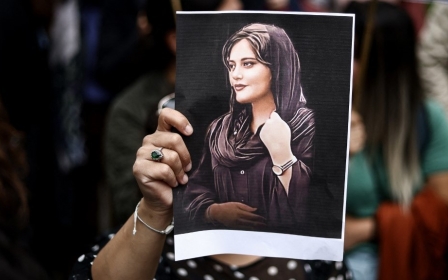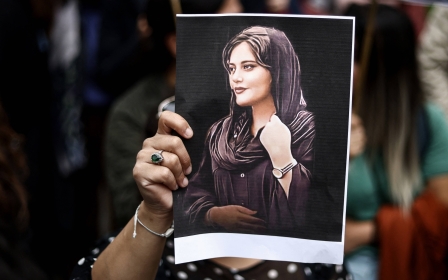Iran: Lawmakers adopt bill for harsher penalties against women violating dress code

Iranian lawmakers passed a bill on Wednesday to strengthen penalties for women violating dress codes, according to state media.
The bill has been discussed in parliament for several months, and introduces tougher penalties against women not adhering to the compulsory veil in public spaces.
Reports in the Islamic Republic News Agency (IRNA) said the bill still requires approval by Iran’s Guardian Council.
“Lawmakers approved the implementation of the ‘Support for the Culture of Hijab and Chastity' bill for a trial period of three years,” the news agency said.
The draft law introduces a range of punitive measures for the various violations it delineates.
Stay informed with MEE's newsletters
Sign up to get the latest alerts, insights and analysis, starting with Turkey Unpacked
Both men and women found wearing "indecent attire" in the street face fines categorised as the "sixth degree" for initial offences, followed by the "fifth degree" for subsequent transgressions.
In simpler terms, this translates to fines ranging from six to 24 million tomans ($100 to $500) for first-time offenders, and 24 to 50 million tomans ($500 to $1,000) for second to fourth offences.
Subsequent violations could carry a fine of 50 to 100 million tomans ($1,000 to $2,000).
There will also be financial penalties for "promoting nudity" or "mocking the hijab" in the media and on social networks, as well as fines and bans on leaving the country for business owners whose employees do not wear a veil.
The legislation further specifies that "indecent attire" for women includes wearing short-sleeved clothing, round-neck T-shirts, three-quarter-length trousers, and ripped trousers. Men, meanwhile, are not allowed to wear low-waist trousers.
The legislation also stipulates that providing services to individuals not wearing the hijab or not adhering to the dress code in tourism-related places would lead to the termination of employment. The person punished also risks being banned from working again in the same field for up to two years.
The bill comes four days after the first anniversary of the death of Mahsa Amini in police custody, which triggered widespread protests and the flouting of mandatory dress codes.
Amini, a 22-year-old Iranian Kurd, died on 16 September 2022 after she was arrested by the "morality police" for allegedly violating the dress code.
Recent efforts by Iranian authorities to force women to wear headscarves in public, including the use of AI cameras, have seemingly failed.
Middle East Eye delivers independent and unrivalled coverage and analysis of the Middle East, North Africa and beyond. To learn more about republishing this content and the associated fees, please fill out this form. More about MEE can be found here.




